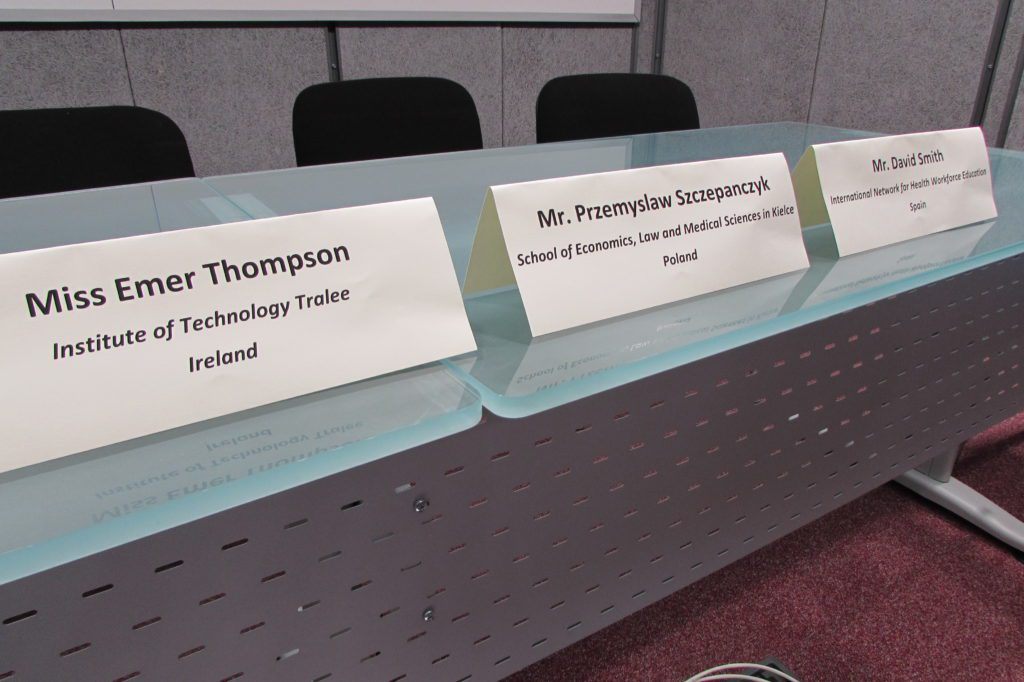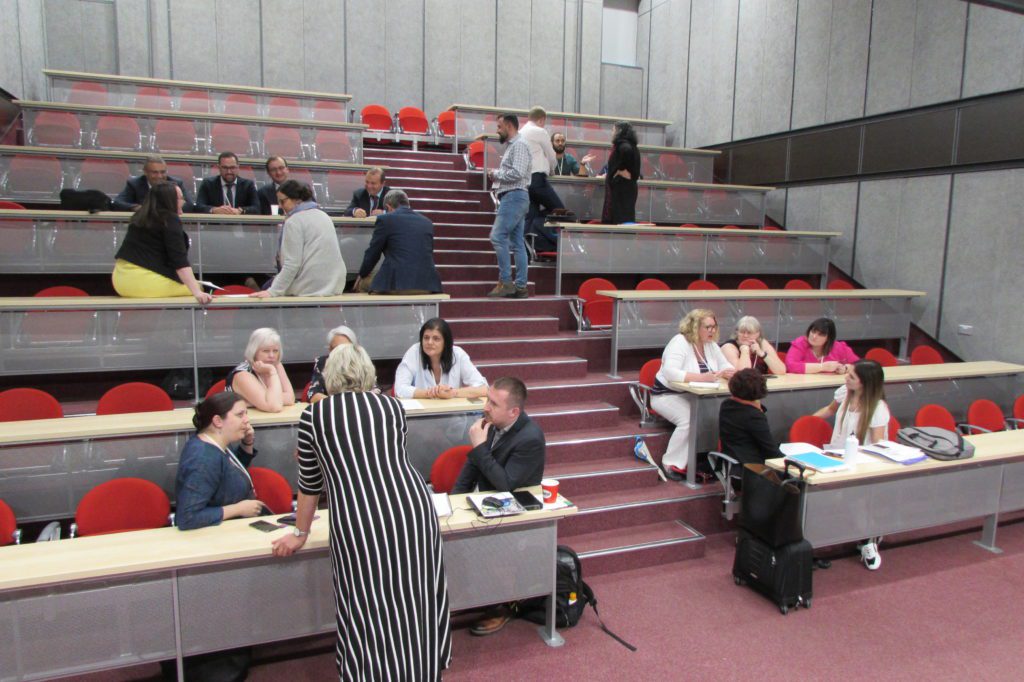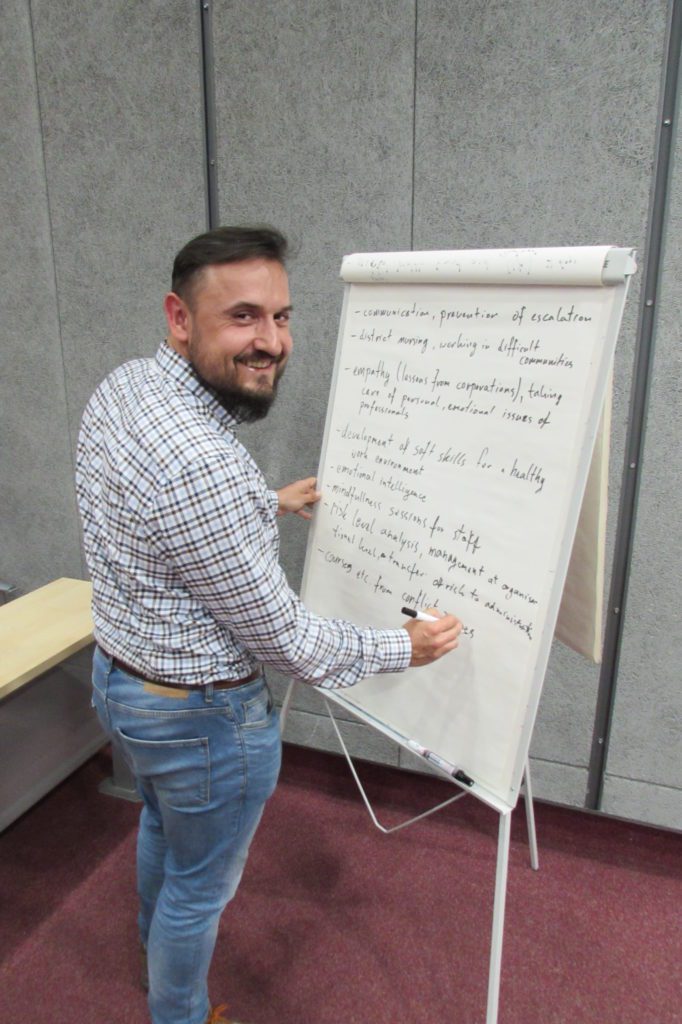The SAFEMEDIC consortium ran a workshop at the 2nd International Congress of Health Workforce Education and Research that took place at the European University Cyprus in Nicosia, Cyprus from Thursday 9th May 2019 to Friday 10th May 2019. The Congress is held once a year and is a prime meeting place for international health workforce educators, researchers and policy makers. This year saw delegates from over 20 countries converge in Nicosia to discuss ‘Future Education for Healthcare’.
The workshop aimed to outline the SAFEMEDIC project as a whole while also acting as a consultation space for the consortium to glean new ideas and insights into the teaching materials. By using the international delegates’ experiences and hearing about the ‘national reality’ of violence and aggression towards healthcare professionals in different countries, leads from the project were able to ensure that they can improve and tailor outcomes to be best used across Europe.
The overall Congress theme tied in nicely with the project aims and challenged delegates to reassess the education and training provided to healthcare professionals “during a time of great change for global healthcare systems the future education of healthcare professionals is key to ensuring long term sustainability for populations. International institutions have called for policies that allow for the education of flexible health professionals capable of dealing with the ever-changing healthcare environment. A multi-stakeholder and inter-professional approach to tackling this issue is paramount to ensuring this takes place.”
Workshop facilitators Emer, Przemek and David would like to thank all those who took part in the event for their extremely valuable contribution to the session and the project as a whole.


